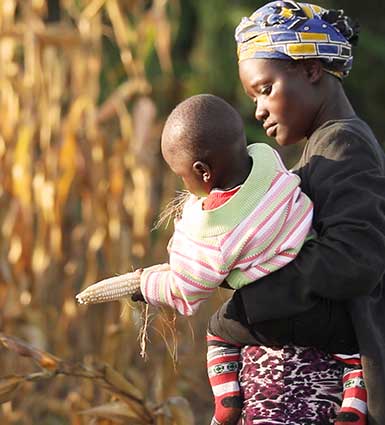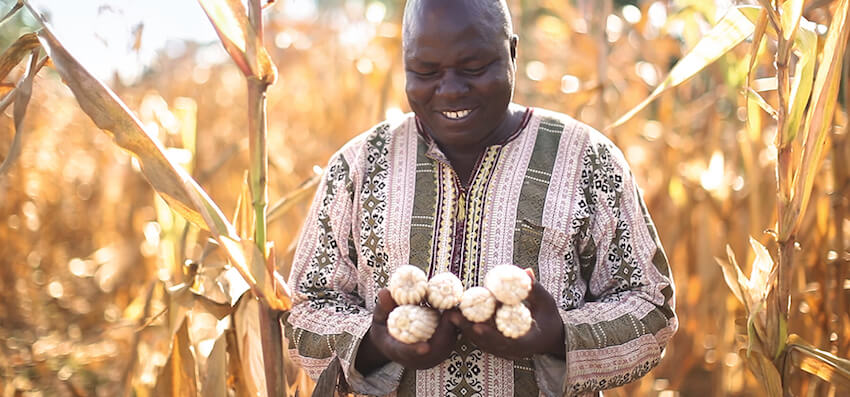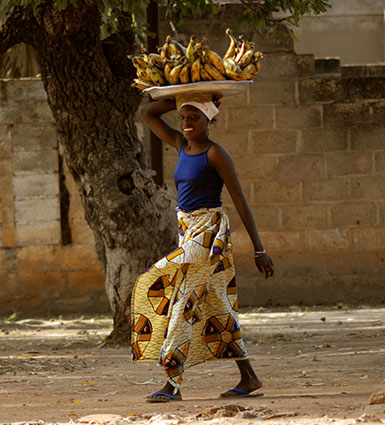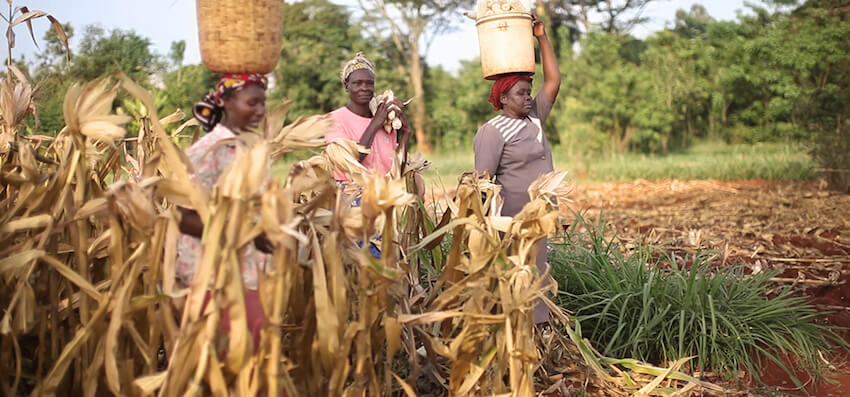
How seed technology helps conserve water
Using Seed Technology to Optimize Water Use
One of the most amazing applications of agricultural technology is drought-tolerant crops. As climate change persists, water-efficient seeds can help farmers produce food while using less water.
CASE STUDY: WATER-EFFICIENT MAIZE FOR
AFRICA [WEMA]
Millions of farmers depend on rainfall to water crops, which affects their ability to feed their families and support the economy. But what happens when drought strikes? Thanks to plant breeding technology, Africa’s main food source, maize, can now be produced with drought-tolerant traits, protecting the crop during unpredictable environment stress.


Developed and Distributed with Care
The WEMA project is a unique public-private partnership led by Kenyan-based African Agricultural Technology Foundation (AATF) and funded by the Bill and Melinda Gates Foundation, Howard G. Buffett Foundation, and USAID. WEMA uses conventional breeding techniques to develop drought-tolerant seed. It is distributed through local seed companies across Sub-Saharan Africa, and these companies pay no royalties, so the seeds are more affordable to farmers. The hope is a drought-tolerant crop will lead to a more secure food supply.


Contributing to a More Stable Economy
Drought-tolerant seeds mean so much more than food security. With a more reliable harvest, farmers are not only feeding their families, but also selling surplus crops, improving their incomes, and strengthening their local economy. When harvests are stable, growers are also more likely to invest in new techniques that make their operations more sustainable.


A Second Line of Defense
Not only is the WEMA project working to equip seeds for drought conditions, they’re using advanced biotechnology techniques to help them better fight pests. Without insect-protected maize, farmers have little choice but to spray their crop often with insecticides1. Not only can insect protection help seeds avoid damage, but it can also improve their ability to absorb water and other nutrients they need more efficiently. All of these things are good for a farmer’s bottom line and the environment.


Access to new technologies is critical to improving on-farm sustainability for all farmers, big and small. Small farmers in developing nations may have a smaller footprint on the environment, but when innovations allow farmers to work in better harmony with their ecosystem, they improve their livelihood and their local economies as well. Better harvests can lead to more food security, and possibly more economic security. Advancements in modern agriculture truly have the power to positively affect the world we live in.
Related Articles


Modern Agriculture: Where Tradition Meets Technology

